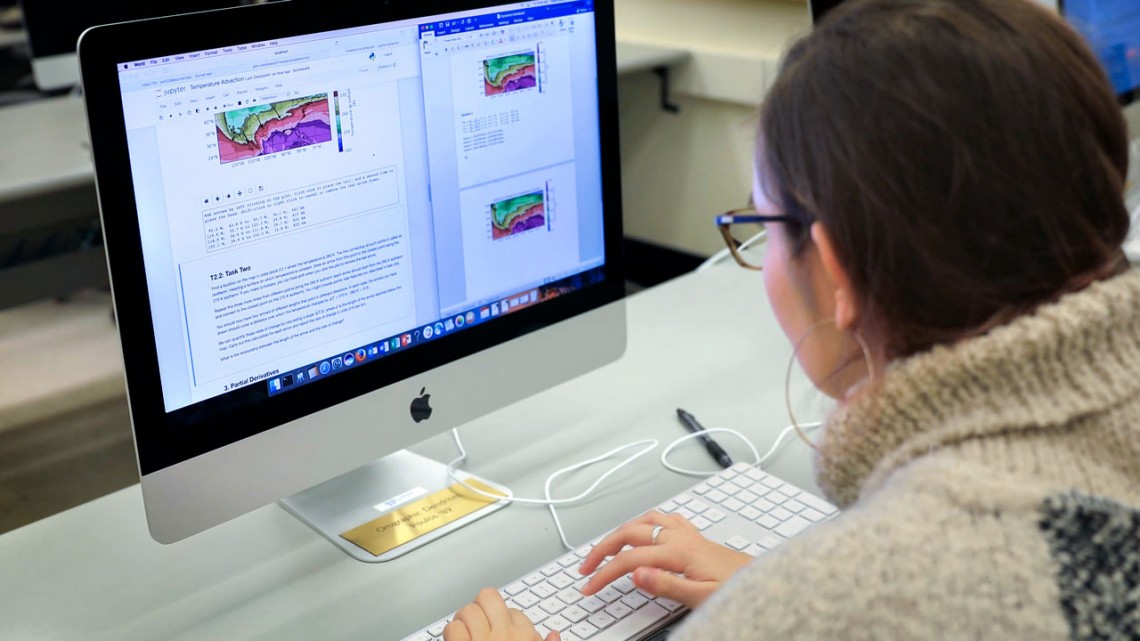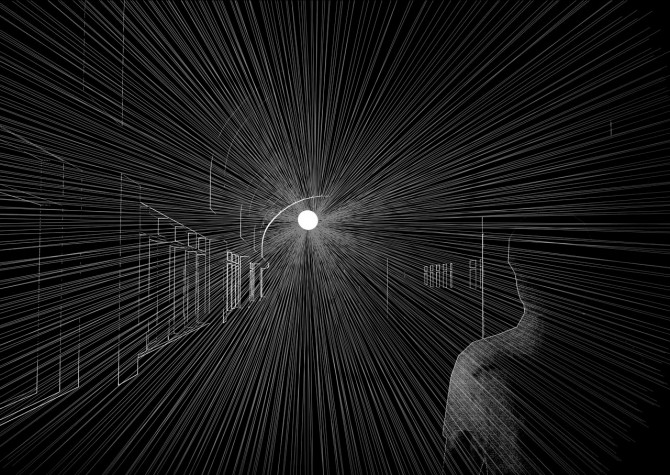
A student works on a Jupyter Notebooks assignment in the Atmospheric Dynamics in Motion class taught by Peter Hitchcock and Mark Wysocki of Earth and Atmospheric Sciences.
CTI Innovation Awards spur new learning opportunities
By Dave Winterstein
Giving students the tools to respond positively to adversity is a critical part of preparing them for their future careers, and is one of the main missions of the Center for Teaching Innovation (CTI).
Each year, CTI grants funding through the Innovative Teaching & Learning Awards to help faculty explore new strategies and tools for enhancing student learning experiences at Cornell. The 2019-20 award recipients faced extraordinary challenges, given the changing landscape of the ongoing pandemic. Their flexibility and improvisation helped create new opportunities with a lasting impact on teaching at Cornell.
Two of this year’s Innovation Award projects brought new tools to undergraduate classes to allow students to apply the concepts they learn in settings similar to what they will encounter in their future careers:
Projected Natures: Observing the digital relationships between organisms – “As a designer, you can evoke feelings through the environments you create,” said Jennifer Birkeland, assistant professor of landscape architecture in the College of Agriculture and Life Sciences (CALS), who received an award to develop a course in which students would use biosensors to understand how individuals interact with environments.
She sought to offer her students the opportunity to create landscapes in which technology and nature work together to build an engaging environment for the community.
“The success of the course was the ability to make connections and explore the impacts of the discipline of landscape architecture,” Birkeland said.
Because students did not have access to the sensors or associated software when the university shifted to remote teaching in the spring, Birkeland had students explore their own emotions around the pandemic through virtual spaces they created.
The modified assignment offered students a chance to use virtual environments to rapidly generate the emotions that create a sense of belonging to a place. Said Birkeland, “We addressed the larger question of what [the remote pandemic teaching environment] means.”
Atmospheric Dynamics in Motion – Through their Innovation grant, Peter Hitchcock, assistant professor, and Mark Wysocki, senior lecturer, both in the Department of Earth and Atmospheric Sciences, incorporated Jupyter Notebooks into their Atmospheric Dynamics course. The Jupyter Notebook app allows students to use real forecast data in visualizations, and manipulate those data to explore the impact on forecast flows.
“With the Notebooks,” Hitchcock said, “students are now working with real tools and data sets that they will use in their careers.”
Said Wysocki: “It gives students freedom to work with and manipulate data, and allows them to improve their ability to communicate about data.”
After incorporating Jupyter Notebooks into the course, Wysocki and Hitchcock found that students used them to explore questions on their own and to generate more discussion with each other and with faculty. Through this, students also learned to take more ownership of their learning process.
The innovation helped Wysocki change his teaching philosophy. “I am now more of a participant in the course,” he said, “rather than an isolated lecturer watching students write things down.”
Read about all six 2019-20 Innovation Award projects on the CTI website.
Dave Winterstein is a communication specialist in the Center for Teaching Innovation.
Media Contact
Get Cornell news delivered right to your inbox.
Subscribe